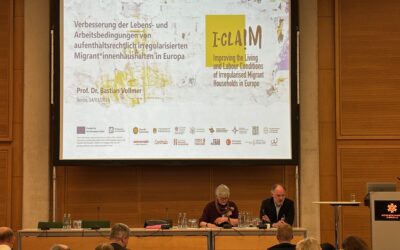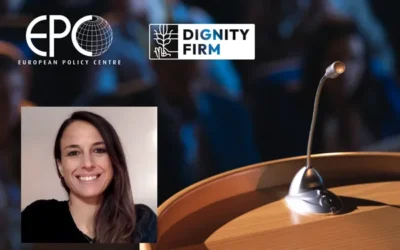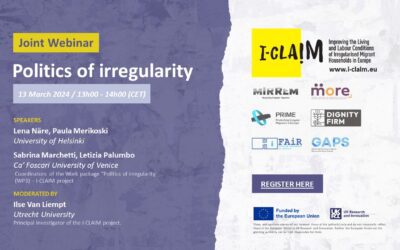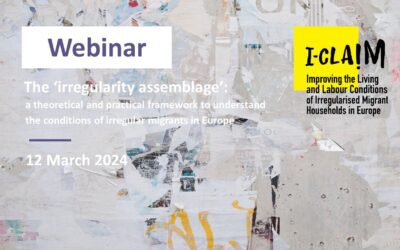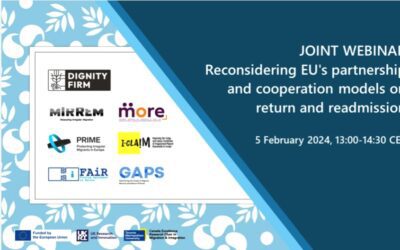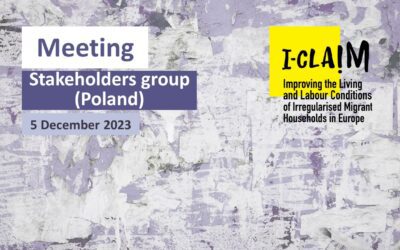Bastian Vollmer, I-Claim member, participated at the „Illegality“ Conference 2024 at the Catholic Academy in Berlin
BLOG CATEGORY
European Union
Irregular Migrant Workers in EU Agriculture
This roundtable aims to facilitate an inclusive and open discussion among stakeholders engaged on relevant migration and F2F policies.
It will focus on the CAP social conditionality mechanism and the new corporate due diligence framework.
Politics of irregularity
Drawing from the findings of the six I-Claim country reports on the topic of “Politics of irregularity”, in the Netherlands, UK, Germany, Poland, Finland and Italy, this webinar will offer an overview of the ways in which irregularity is generated and shaped in practice at the intersection of national legal and policy frameworks
The ‘irregularity assemblage’
The webinar will offer an introduction to the Horizon Europe I-CLAIM study that investigates the living and working conditions of irregular migrants in six European countries.
Reconsidering EU’s partnership and cooperation models on return and readmission
In this webinar, representatives from Horizon Europe projects working on these topics would like to critically elaborate on various models of return and readmission arrangements.
I-CLAIM Stakeholders’ Meeting (Poland)
This meeting took the form of an expert discussion moderated by prof. Aleksandra Grzymała-Kazłowska (Faculty of Sociology, Migration Research Center, University of Warsaw). It was attended by representatives of institutions – ministries, think-tanks and non-governmental organizations working for refugees and migrants in Poland (including those created by people with migration experience).
I-CLAIM Stakeholders’ Meeting (Helsinki, Finland)
On 29th November, the I-Claim Finnish team held a Stakeholders Meeting in Helsinki. The two themes discussed were family and work through the perspective of different services that are available for people in irregular situation in Finland.
Moving forward on Improving Migrant Worker Rights? Key Discussions Recasting the Single Permit Directive: 2nd Joint Webinar
On December 1, from 13.00 to 14.15 CET, the Centre for Migration Law and a group of Horizon Europe projects focusing on irregular migration in Europe (including I-Claim) will present the second online joint webinar.
First Stakeholder meeting I-CLAIM (The Netherlands)
I-Claim is starting its series of Stakeholder Meetings. The first meeting took place in The Netherlands where key stakeholders in the field of irregular migration reacted to the draft version of the first I-CLAIM report: ‘The Legal and Policy Infrastructure of Irregularity. The Netherlands’.
